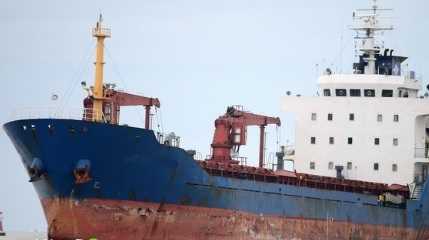
26 February 2024; MEMO: Yemen’s Houthis fired a missile that likely targeted the “Torm Thor” in the Gulf of Aden on 24 February, but missed the US-flagged oil tanker, the US Central Command (CENTCOM) said on Monday, as the group steps up attacks on ships, Reuters reports.
Shipping risks have escalated due to repeated Houthi drone and missile strikes in the Red Sea and Bab Al-Mandab Strait since November in support of Palestinians in Gaza. US and British forces have responded with several strikes on Houthi facilities but have, so far, failed to halt the attacks.
The Houthis, last week, sent shipping officials and insurers formal notice of what they termed a ban on vessels linked to Israel, the US and Britain from sailing in surrounding seas, seeking to reinforce their military campaign, in advisories seen by Reuters.
In the latest attack, the missile impacted the water, causing no damage or injuries, CENTCOM added in a post on X.
The group said on Sunday that they had launched an attack on the tanker.
READ: US military drone shot down near Yemen, US officials say
The “Torm Thor” is being used as part of the US government’s Tanker Security Program, which has aimed to bolster oil shipping options for its armed forces in times of crisis, the US Maritime Administration has said.
Two maritime security sources said the vessel had a US military escort.
The vessel’s owner is Denmark’s Torm, although it does not operate the ship, shipping databases showed.
Torm told Reuters it had halted sailings in the Red Sea and the Gulf of Aden since mid-January for its fleet of 85 vessels that it has full control of.
“Our decision to pause all transits through the southern part of the Red Sea for TORM operated vessels remains unchanged, prioritising the safety and well-being of our crew above all,” the group said.
The US military also shot down in “self-defence” two one-way unmanned aerial attack vehicles over the southern Red Sea on Sunday, CENTCOM said.
The Houthis, who control the most populous parts of Yemen, have launched exploding drones and missiles at commercial vessels since 19 November as a protest against Israel’s military operations in Gaza.
Abandoned “Rubymar” vessel
There were growing concerns on Monday for the fate of the abandoned cargo vessel, “Rubymar”, after it was hit by a Houthi missile on 18 February in the southern Red Sea and was leaking fuel.
Shipping sources said weather in the area had worsened in recent days with strong winds.
The “Rubymar’s” owner is looking at towing the vessel to Saudi Arabia once a hole can be patched up, the ship’s chartering broker said on Monday.
“She is still afloat with engine room and no. 5 hold under water,” Roy Khoury, CEO of Lebanon-based Blue Fleet Group, told Reuters by email.
Khoury said they were looking at bringing in a work ship that will attempt to close the hole caused by the Houthi missile.
“There is a small fuel leakage,” Khoury said, adding that vessel was carrying 22,000 tonnes of fertiliser onboard.
“We are contracting a tug boat to come alongside and tow the vessel to a safe port. The problem is that neither Djibouti nor Aden port authorities are accepting the vessel,” Khouri said.
“So, we are now looking at Jeddah in Saudi Arabia.”
A Yemeni port source said the vessel was far away from the southern Yemeni port of Aden and the port had not been asked to help with the towing of the vessel.
A separate Yemeni government source said a team had visited the Rubymar on Monday and they observed oily patches floating on the water surrounding it with part of the vessel sinking.
Djibouti officials could not be immediately contacted.
The turmoil from Israel’s war with the Palestinian group, Hamas, has spilled over to some extent into other parts of the Middle East. Apart from the Houthi attacks on vital shipping lanes, Lebanon’s Hezbollah group has traded fire with Israel along the Israel-Lebanon border and Iraqi militia have attacked bases that host US forces.




